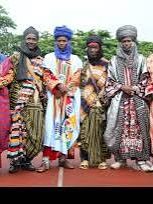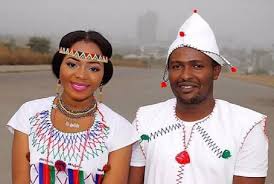Yemi Olakitan
The Hausa people of Nigeria, one of the largest ethnic groups in West Africa, have a rich and vibrant culture that has endured for centuries. Spread across Northern Nigeria and parts of Niger, their customs, traditions, language, and social structures make them one of the most influential ethnic groups in Africa. Their culture is deeply rooted in history, religion, art, and commerce, making it a fascinating subject of study.
The Hausa language, a member of the Afro-Asiatic language family, is one of the most widely spoken languages in Africa. It serves as a lingua franca in many West African countries, fostering communication and trade. Hausa literature, both oral and written, is renowned for its rich tradition of storytelling, poetry, and proverbs, which reflect the values, wisdom, and philosophies of the people.

The Hausa people are known for their distinct and elegant traditional attire. Men often wear flowing robes called Babban Riga, paired with intricately embroidered caps known as Fula or Zanna caps. Women, on the other hand, adorn themselves with colorful wrappers called Zani, accessorized with scarves, jewelry, and sometimes henna decorations on their hands and feet. These attires are not only aesthetically pleasing but also symbolize cultural identity and social status.
Hausa cuisine is diverse and flavorful, featuring staple foods such as tuwo shinkafa (rice pudding), fura da nono (millet dumplings with fermented milk), suya (spicy grilled meat), and masa (rice cakes). These dishes are often accompanied by rich soups and sauces, made with ingredients like groundnuts, tomatoes, and spinach. The communal aspect of Hausa dining highlights the importance of unity and hospitality in their culture.
The majority of the Hausa people practice Islam, which significantly influences their daily lives, customs, and celebrations. Islamic festivals such as Eid al-Fitr and Eid al-Adha are widely celebrated with prayers, feasting, and social gatherings. The Durbar Festival, one of the most spectacular cultural events, features grand parades of horsemen, music, and royal displays, reflecting the historical ties of the Hausa people to cavalry and governance.
Historically, the Hausa people have been known for their entrepreneurial spirit and expertise in trade. Major Hausa cities such as Kano, Katsina, and Zaria have served as significant commercial hubs for centuries, facilitating trade in textiles, leather goods, agricultural products, and handicrafts.
The famous Kano dye pits. where fabric is dyed using ancient techniques, continue to be a symbol of Hausa craftsmanship and economic resilience.
The culture of the Hausa people is a testament to their rich history, resilience, and adaptability. From their language and attire to their cuisine, music, and commerce, every aspect of their culture reflects a deep sense of identity and pride. As Nigeria continues to evolve, the Hausa people remain a significant pillar of its cultural and historical heritage, preserving traditions that continue to inspire and unite generations.
Marriage Customs of the Hausa People

The Hausa people of Nigeria, predominantly found in the northern regions of the country, have a rich and deeply rooted tradition when it comes to marriage. Their marriage customs are influenced by Islamic teachings, cultural heritage, and societal values, making the institution of marriage a highly respected and cherished event in Hausa society,
In Hausa tradition, marriages are often arranged by families, though modern influences allow for some level of personal choice. The process begins with the groom’s family formally approaching the bride’s family with gifts known as Kayan Zance. These gifts typically include kola nuts, perfumes, and other valuable items to signify serious intent and respect.
Once the proposal is accepted, the groom must provide a Sadaki (bride price), which is an essential component of Hausa marriages. The amount varies but is often symbolic and not meant to be overly burdensome. Additionally, the groom provides Kayan Lefe, a collection of clothes, jewelry, cosmetics, and other personal items for the bride, showcasing his ability to care for her needs.
The actual wedding ceremony, known as Fatiha, is a simple yet significant religious event conducted in the presence of an Islamic scholar (Imam), family members, and witnesses. The bride and groom do not necessarily have to be present, as the union is solemnized through representatives. Prayers are offered, and the marriage contract is signed.
Wedding Festivities and Walima

Following the Fatiha, a Walima (wedding feast) is held, where family, friends, and the community come together to celebrate. Traditional music, dancing, and cultural performances may be part of the festivities, depending on the family’s preference.
Post-Wedding Traditions
After the wedding celebrations, the bride is escorted to her husband’s home in a custom known as Gida Zuwa. This transition is marked with prayers and blessings for a successful and harmonious marriage.
In Hausa culture, elders play a crucial role in guiding newlyweds, ensuring they understand their responsibilities in marriage. Family support remains strong, and disputes are often resolved within the family structure to maintain harmony.
Polygamy in Hausa Marriages

As Islam permits polygamy, some Hausa men may have more than one wife, provided they can treat all equally and meet their needs. This practice is common but is guided by strict religious and societal expectations.
Marriage among the Hausa people is not just a union between two individuals but a bond between families and communities. Rooted in tradition and religious values, the Hausa marriage customs reflect the importance of family, respect, and commitment in their society. Despite modern influences, these customs remain a vital aspect of Hausa cultural identity.
